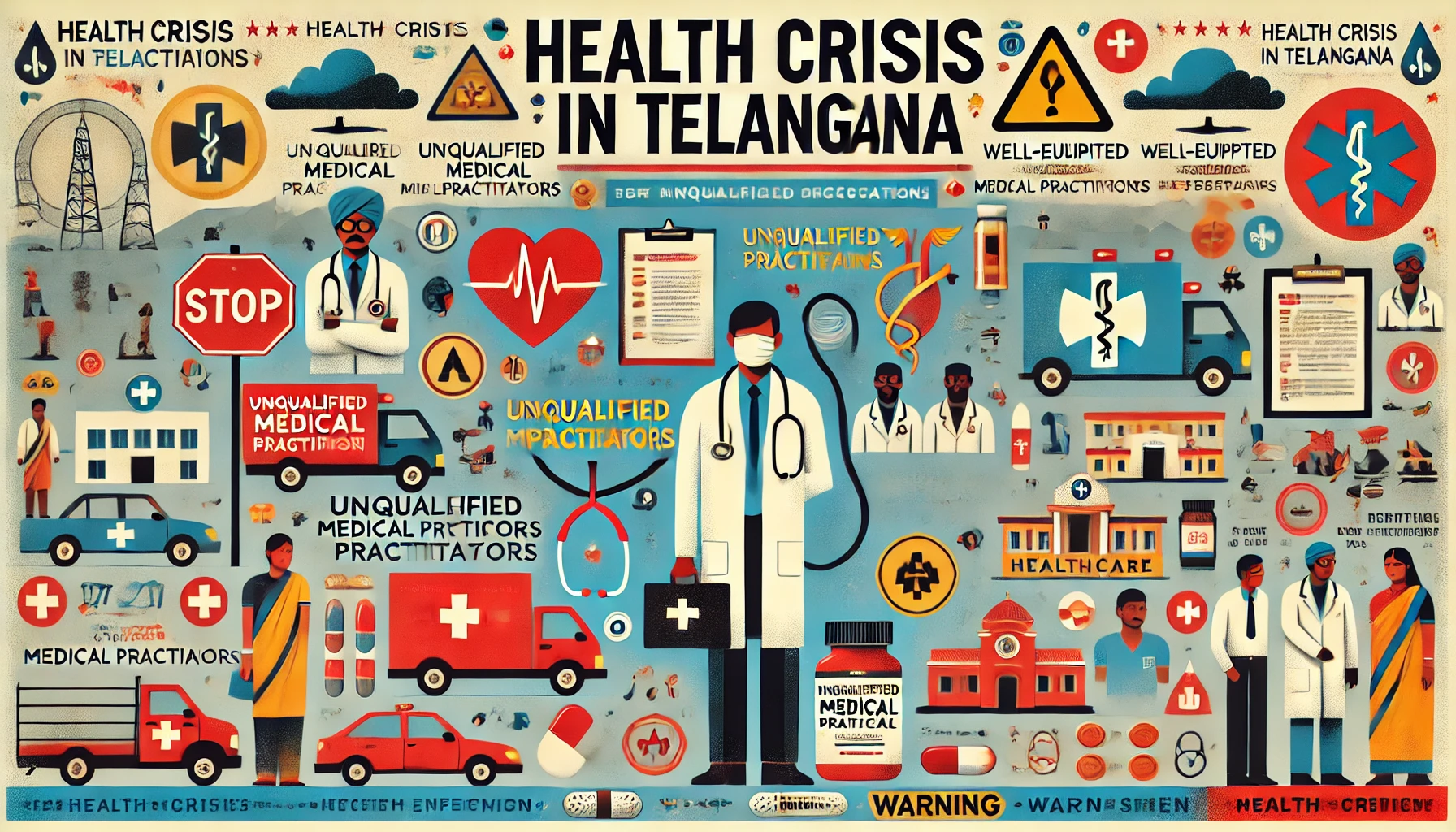Telangana faces a public health crisis as over 50,000 unqualified “doctors” fuel quackery and misuse of medicines, leading to rising antibiotic resistance and harm to vulnerable patients. With inadequate healthcare infrastructure and a shortage of qualified medical professionals in rural areas, the need for urgent reforms and stricter enforcement is critical.
The State Public Health Wing, particularly the District Health and Medical Officers (DM&HO), holds special authority Telangana faces growing health crisis as 50,000 unqualified ‘doctors’ spread quackery, medicine abuse
The State Public Health Wing, especially the District Health and Medical Officers (DM&HO), under Clinical Establishment Act, have special powers to take action on unqualified medical practitioners. However, according to the estimates from Telangana State Medical Council, there are anywhere between 50,000 and 53, 000 Unqualified Medical Practitioners, who practice allopathy without MBBS degree. In Hyderabad alone, by rough estimates, there could be over 10,000 such unqualified individuals who are illegally practicing allopathy without a qualification.
While the DM&HOs have shied away from taking action on quacks, it is Telangana State Medical Council and TS Drug Control Administration (TSDCA), which have been actively involved in identifying such persons. Over the last few months, the DCA has seized significant stocks of antibiotics, steroids and painkillers and initiating legal action on them.
“Quackery is a major challenge for public health system in Telangana. We have observed large number of patients, especially from districts who come to NIMS, OGH and Gandhi Hospital with resistance to high-end antibiotics. The reason is the practice of irrational and unscientific use of antibiotics, steroids and pain killers etc by quacks on vulnerable patients,” says vice-chairman, Telangana State Medical Council, Dr G Srinivas.
Non-availability of doctors
A major reason why people, especially in villages and districts still visit quacks is non-availability of doctors. Based on available data, Telangana State has close to 5, 500 sub-centres with each facility covering at least 2 to 3 villages. However, there are no qualified doctors (medical officers), nursing staff, pharmacists and related medical infrastructure at the sub-centre level.
“Medical officers and other staff must be available to people in districts 24X7. That’s why Kerala model of public health is far ahead that ours because of availability of qualified health care workers at the primary health care level,” says Dr Srinivas.
Apart from the sub-centres, there is a requirement for 30 percent increase in the number of Primary Health Centres (PHCs) and 50 percent additional Community Health Centres (CHCs), with proper manpower allocation i.e. each additional facility must have doctors and nursing staff round the clock to take care of the patients.
“The argument that doctors are unwilling to accept positions in districts or rural areas is totally false. Recently, while recruiting 600 medical officers posts at PHCs in Telangana State, for one single post, at least 10 doctors had applied. The best way to deal with quacks is to improve accessibility of doctors,” says Dr Srinivas.
- Telangana has a major public health challenge in quackery
- Estimates suggest more than 50,000 quacks in Telangana
- In Hyderabad, it would be more than 10,000 unqualified quacks
- State health wing, district medical and health officers mute spectators
- Rampant abuse of steroids, antibiotics and pain killers by quacks
- Severe shortage of doctors and other health care workers must be addressed
To combat Telangana’s quackery crisis, strict enforcement, improved healthcare access, and strengthened primary care infrastructure are essential. Swift action is needed to protect public health and ensure ethical medical care for all.#hydkhabar

